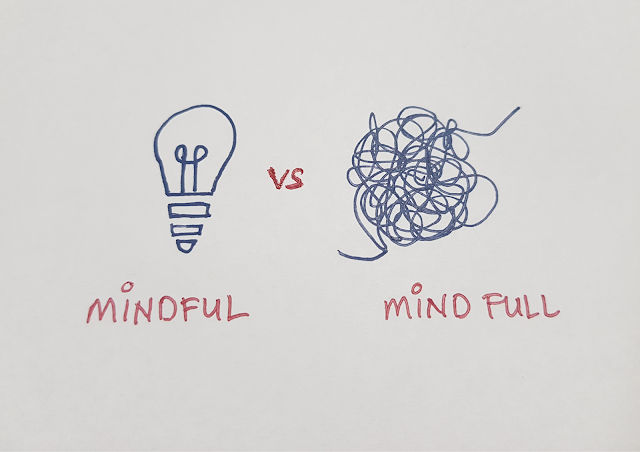THE POWER OF MINDFULNESS: FINDING PEACE IN THE PRESENT
In our hectic lives, we often find ourselves entangled in the web of past regrets and future worries, which can lead to stress and anxiety. The ancient practice of mindfulness offers a powerful antidote to this mental turmoil, allowing us to find tranquillity by grounding ourselves in the present moment. In this article, we'll explore the essence of mindfulness and how it can help alleviate stress associated with dwelling on the past or fretting about the future. We'll also draw upon research to substantiate its effectiveness.
Mindfulness is the practice of paying deliberate and non-judgmental attention to the present moment. It encourages us to observe our thoughts, emotions, and sensations as they arise without attaching undue importance or judgment to them. Mindfulness can lead to reduced symptoms of anxiety, depression, and stress.
Watching Thoughts as Clouds
Imagine your thoughts as clouds drifting across the sky. Instead of clinging to them, let them float by. This simple analogy captures the essence of mindfulness. According to a study in the "Journal of Clinical Psychology" (Roemer et al., 2008), mindfulness techniques, such as thought observation and acceptance, have been effective in reducing rumination, a common precursor to stress and anxiety.
What Will This Brain in My Head Think Next?
A fundamental aspect of mindfulness is observing the thoughts that arise without trying to control them. Instead of becoming ensnared in a cycle of worrying about what your mind might conjure up next, simply observe and acknowledge your thoughts. Research published in the "Journal of Anxiety Stress Coping" (Coffey et al., 2010) suggests that mindful awareness of thoughts can lead to a reduction in stress-related symptoms.
Senses Over the Weather
When stress about the past or future threatens to overwhelm you, redirect your attention to your senses. Engage with your surroundings by paying close attention to what you see, hear, smell, taste, and touch. This sensory grounding can be a powerful tool for shifting your focus away from stressful thoughts. Mindfulness practices that involve sensory awareness can enhance emotional regulation and reduce stress.
Mindfulness encourages us to engage fully with the present moment. Rather than dwelling on past regrets or future uncertainties, we focus on our current sensory experiences. Mindfulness-based stress reduction techniques significantly improved participants' perceived stress levels and overall well-being.
Conclusion
Mindfulness is a valuable tool that can help us break free from the grip of past regrets and future anxieties. By observing our thoughts without judgment and immersing ourselves in the present moment, we can find peace and reduce stress. The research supports the effectiveness of mindfulness in improving mental well-being, making it a valuable practice to incorporate into our daily lives. So, the next time you find yourself lost in thoughts of the past or future, remember to watch your thoughts like clouds and come back to the beauty of the present moment.



